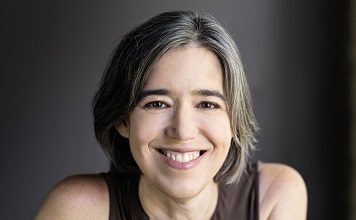miCRo: “Porcelain Spoons” by Amanda Galvan Huynh
This flash essay tells its story through what’s left off the page, the absences we feel but cannot bridge.
miCRo: “A Queer Girl’s Guide to Reading Fairy Tales” by Rebecca Turkewitz
Unable to imagine herself as the princess pining for a prince charming, the speaker of this piece looks closer and finds herself in the unconventional, the unexpected.
miCRo: “In the Same Space” by Parade Stone
On a single block beneath the thundering J train, Bed Stuy residents “seek connection, resist displacement.”
miCRo: “In Memoriam” by Chelsea Rathburn
Using the best tools of flash, this story reveals the complicated experience of grieving for a former spouse who’s passed away.
miCRo: “Porcelain Spoons” by Amanda Galvan Huynh
This flash essay tells its story through what’s left off the page, the absences we feel but cannot bridge.
miCRo: “Boys Will Be” and “Pennsylvania Turnpike, heading west” by Matt Del Busto
Matt Del Busto’s stunning poems take up age-old questions about how the past shapes us.
miCRo: “Of Precipice” by Michelle Menting
Michelle Menting’s lyric microessay “Of Precipice” moves with the vibrations of haiku, tanka, epigrams, and other short and imagistic poems
miCRo: “Flare” by Chrissy Martin
In her microessay on chronic pain, Chrissy Martin breaks down and redefines the language of suffering and resilience.
miCRo: “Snapper” by Nicholas Mainieri
In Nicholas Mainieri’s lean, lyrical story, a fishing trip between a boy and his father offers startling revelations about our place in the world and truths that run deeper than language.
miCRo: “Snapper” by Nicholas Mainieri
In Nicholas Mainieri’s lean, lyrical story, a fishing trip between a boy and his father offers startling revelations about our place in the world and truths that run deeper than language.
miCRo: “The Taegukgi on a Bus Ride from Apgujeong to Gyeongnidan” by Soleil David
In Soleil David’s poem “The Taegukgi on a Bus Ride from Apgujeong to Gyeongnidan” a flag caught on a side mirror inspires questions about devotion and belonging.
miCRo: “Homesick Sonnet” by Steven Espada Dawson
Steven Espada Dawson’s sonnet about the Los Angeles area creates a compelling scene about the complexity of the lost Eden.
















